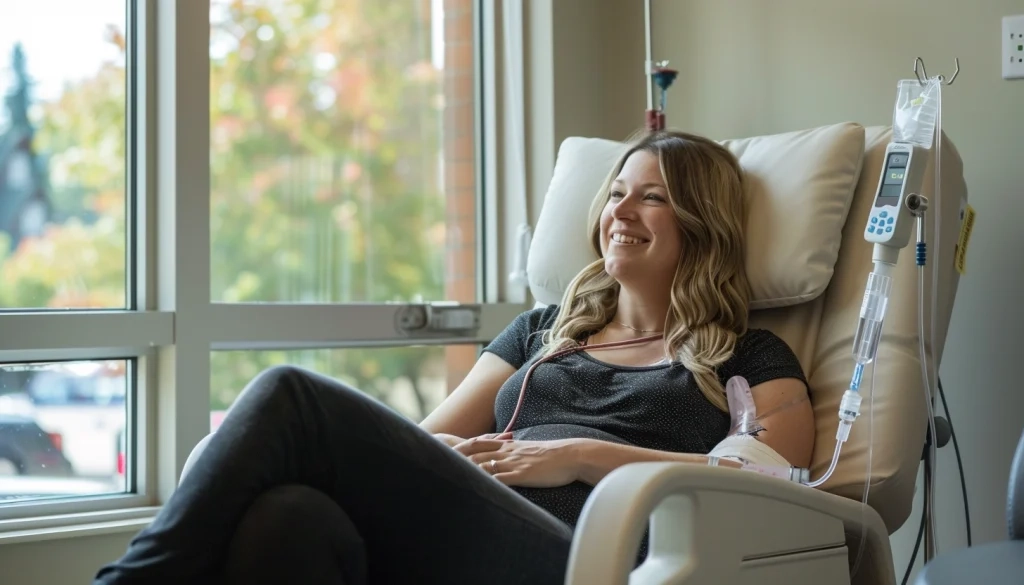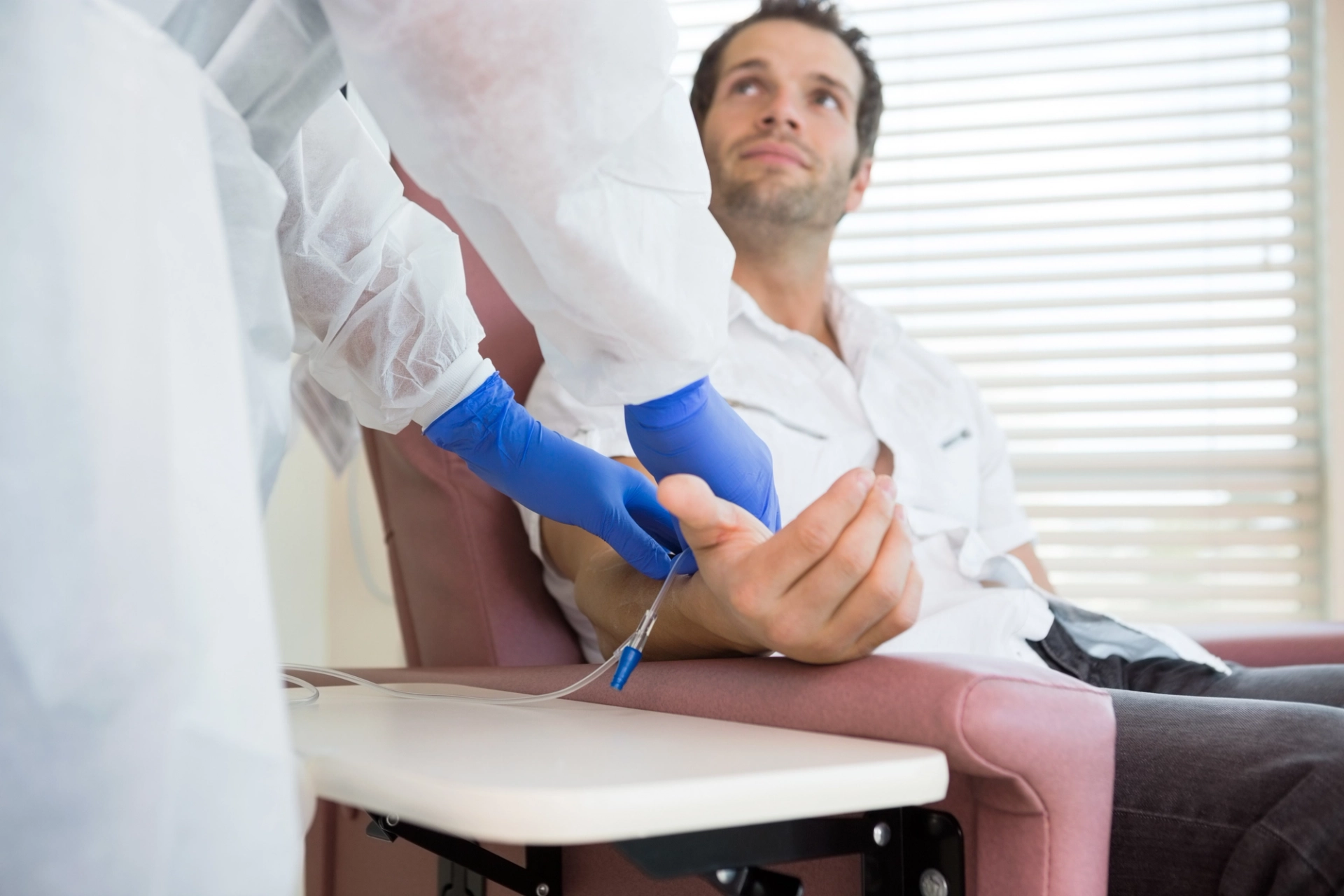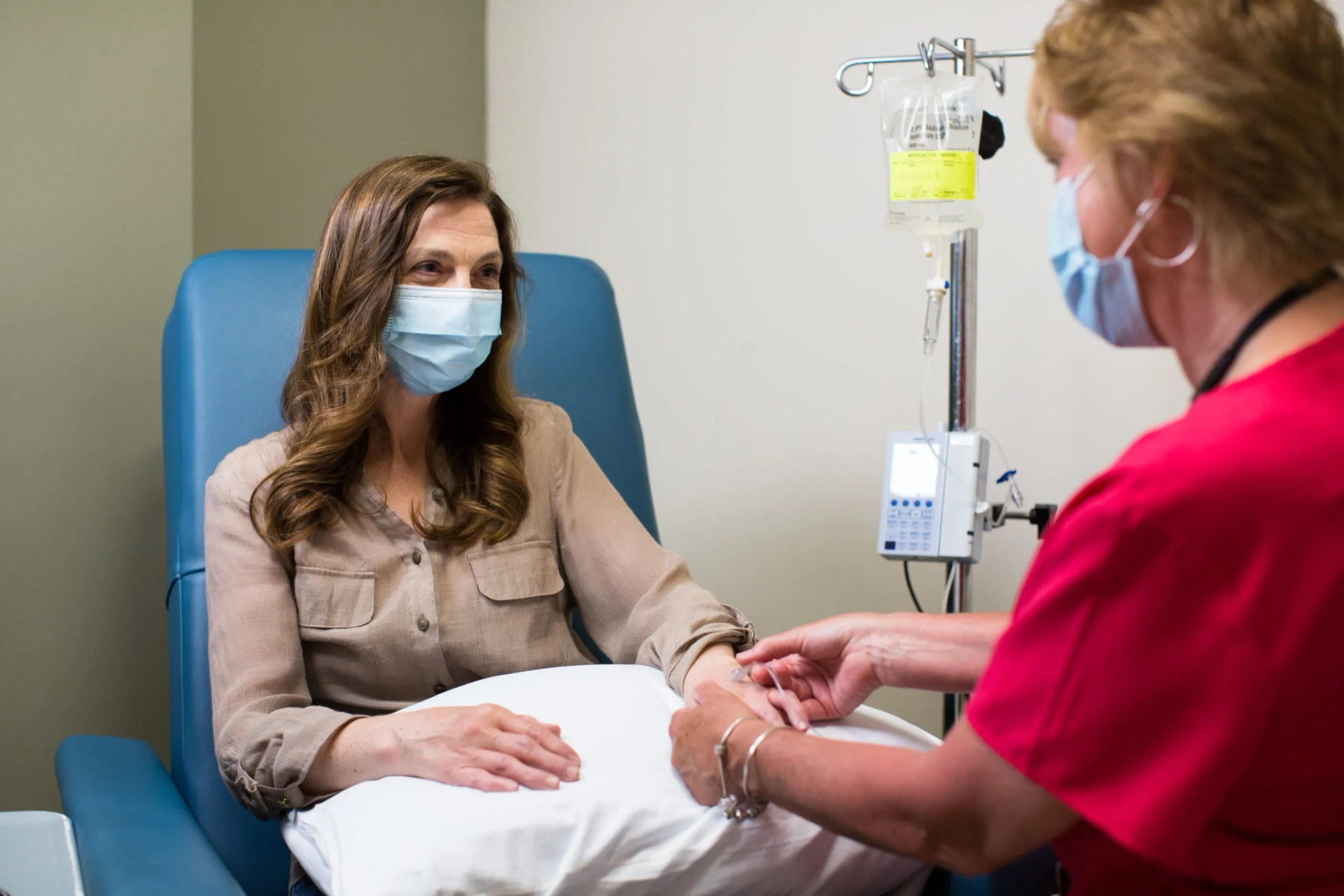Thyroid eye disease Infusion Therapy
Thyroid eye disease, also known as Graves' ophthalmopathy, is an autoimmune condition affecting the eyes and surrounding tissues, often associated with thyroid disorders. It can cause symptoms such as eye bulging, double vision, dry eyes, and in severe cases, vision loss due to inflammation and swelling of the muscles and fatty tissues around the eyes.

Symptoms

Symptoms
Here are the main symptoms of Thyroid Eye Disease (TED):
- Eye bulging (proptosis)
- Eyelid retraction
- Dry, irritated eyes
- Excessive tearing
- Eye redness and inflammation
- Double vision
- Light sensitivity
- Eye pain or pressure
- Difficulty closing eyes fully
- Blurred vision
- Swollen eyelids and surrounding tissues
- Limited eye movement
Severity varies between individuals. If you're experiencing these symptoms, especially with a history of thyroid issues, consult an ophthalmologist or endocrinologist for proper evaluation and treatment.

Treatment Options
Mild TED:
- Artificial tears and lubricating ointments for dry eyes
- Lifestyle changes (smoking cessation, sleep with head elevated)
- Selenium supplements (may help in mild cases)
Moderate to severe TED:
- Corticosteroids
- Oral prednisone
- Intravenous methylprednisolone (more effective, fewer side effects)
- Teprotumumab (Tepezza):
- First FDA-approved medication specifically for TED
- Reduces eye bulging and double vision
- Orbital radiotherapy
- Often combined with steroid Can help reduce inflammation
- Surgical interventions (usually considered after the active phase):
- Orbital decompression surgery (to reduce eye bulging)
- Strabismus surgery (to correct double vision)
- Eyelid surgery (to address retraction or for cosmetic improvement)
- Supportive measures:
- Prisms in glasses (for double vision)
- Botox injections (for eyelid retraction)
- Taping eyelids closed at night (if unable to close eyes fully)
- Management of thyroid dysfunction:
- Treating underlying thyroid disorder (hyper- or hypothyroidism)
- Radioactive iodine therapy, antithyroid medications, or thyroidectomy may be considered

Living withTED
- Eye care: Use artificial tears, cool compresses, and sunglasses.
- Sleep with head elevated to reduce swelling.
- Quit smoking and maintain a healthy diet.
- Manage stress through relaxation techniques or counseling.
- Make workplace adjustments (e.g., proper lighting, screen positioning).
- Attend regular medical appointments.
- Take medications as prescribed.
- Stay informed about TED and consider joining support groups.
- Develop strategies for managing flare-ups.
- Educate others about your condition.
These steps can help manage symptoms and improve quality of life while living with TED.
Meet our Infusion Specialists
Jalal Thwainey M.D.
Medical Director
Emilie Wojcik, N.P.
Director of Clinical Services
For Provider
Simplify patient referrals and offer advanced treatment options with our infusion partnership program.
For Patient
There may be a better way to manage your condition – explore infusion therapy.





